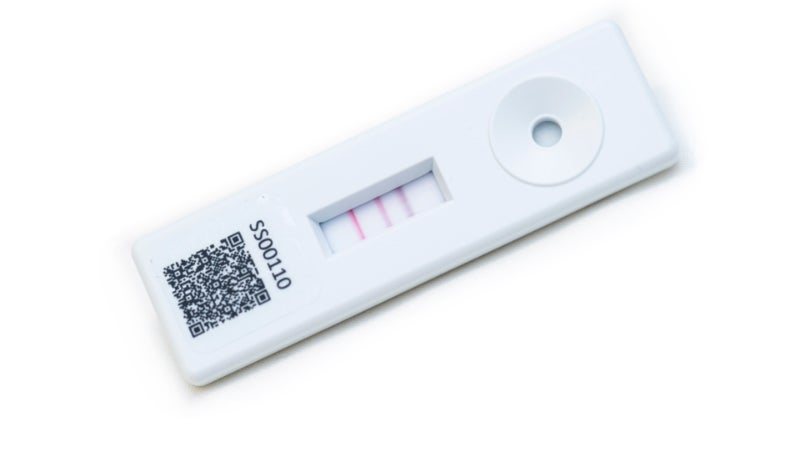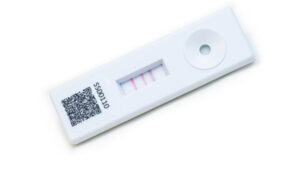UK Company Championing Near-Patient Testing for Therapeutic Differentiation

Analysts calculate by 2020 $25bn of $100bn in biologics trades will be intended for off-patent therapeutics and suggest tactical planning should aim to reinforce any degree of differentiation.
How can organisations get a foot-hold in this competitive section of the market and avoid missing significant opportunities?
Cost-effective therapeutic differentiation for the competitive edge
Abingdon Health, a point-of-care (POC) contract manufacturing and mHealth solution provider from the UK with extensive experience in global regulated markets and adopting legal manufacturer status, is championing the use of near-patient testing technology for aiding therapeutic and biosimilar product differentiation.
Abingdon Health is partnering with the pharmaceutical industry to allow the trade to take advantage of the cost and easy-to-use benefits offered by lateral flow immunoassay and connected Smartphone reader POC technology for drug activity monitoring.
The technology offers a variety of professional, over-the-counter (OTC) and home-based testing and monitoring solutions owing to its portability and flexibility in being able to offer qualitative, semi-quantitative or fully-quantitative results and detect different markers in a variety of sample types.
The process of monitoring drug activity markers comes with many testing, logistics, time and cost pros and cons, especially when it comes to monitoring combination-drug-therapy. A big concern for clinicians and patients alike is slow results delivery and any subsequent delay in drug therapy guidance owing to labour intensive laboratory monitoring methods. With Abingdon Health’s POC technology, the ability to test in the clinic, transfer data via connected Apps or allow patients to test at home using intuitive sampling and testing methods alleviates delays in results turnaround. Cost saving is another payoff in this scenario through the reduction of patient touch-points and subsequent labour requirements.
The competitive advantage and growth opportunities for the pharmaceutical industry lie in greater uptake in a therapeutic or biosimilar owing to the quick and intuitive way in which a drug can be monitored. Policymakers are more likely to choose the use of approved drugs if the monitoring methods aid the concerns of busy and financially-stretched primary care services.
Clinical trial decentralisation solution
Between 2018-19, nearly 870,0002 people took part in clinical research across England. This is a significant number, but it is likely to have been more people who contemplated taking part but did not: anxiety, time-constraints or general inconvenience the likely reasons for non-participation.
Clinical trial managers could overcome non-participation by offering a home-testing solution where clinical-trial participants could easily sample at home, run tests, upload results to an App and transfer the data from any location. The obvious benefits being the reduction of labour costs, fewer clinic visits by patients, and enrolling a wider geographic cohort owing to portable point-of-care tests and connected Smartphone Apps. In turn, the duration of the clinical trial will be reduced because decision-makers can analyse results quicker and therefore submit for approval faster.
See how Abingdon Health is aiding therapeutic and biosimilar product differentiation strategies by filling in the enquiry form on this page.


